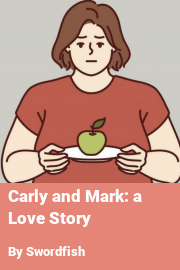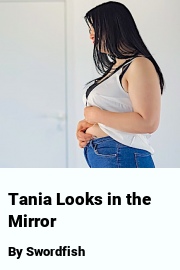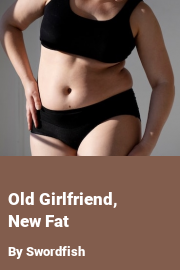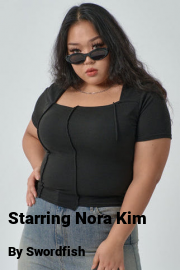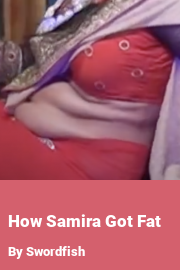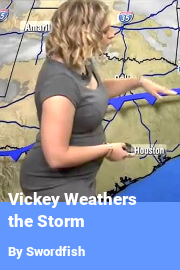Chapter 1
"The thing about Rosie," Jason said, half whispering, "is that she has no female appurtenances.""A what?"
"Purtenances. Appurtenances. You know, appendages, accessories."
"I bet you found that word in a book. No-one actually says it in conversation."
"Well, I just did."
Harry, his companion, mused. "You mean tits, I take it?"
"Tits and bum. Curves in general. She doesn't have any, well none that you'd notice. Basically, she's got the physique of a lamp-post."
Harry mused some more as he returned to the job they both had in hand, adding new stock to the shelves of Big Bag of Books, the cramped second-hand bookshop in central London where they both worked, together with Rosie.
"Nice, though, don't you think? I mean she's quite pleasant, well more than pleasant."
"I don't deny that at all. It's just that she's not very" - here his voice grew even quieter, though there was nobody else in the shop's basement - "sexually alluring."
"Does she have to be, I mean immediately?"
"No, but - oh, I'm just making a comment. Got to do something when you're re-stocking the shelves." Jason briefly looked at the battered spine of the olive-coloured vintage hardback he was slotting into the biographies. "God, who would want to buy a memoir called 'The Puppet Show of Memory'"? He then glanced at the title page. "1922. A first edition. Only £5. Ink splodge, I see, on the back cover. Even so, I bet this will be hard to shift."
"Who's the author?"
"Maurice Baring?"
"Who?"
" ;Quite. Derek does buy some peculiar stock." This was a reference to the shop's owner, Derek Winsford, an older, whimsical gentleman currently upstairs, staring out at the world as usual through glasses with convex lenses thick enough to have been part of a fish tank at a zoo.
At this point, company entered the basement. It was Rosie herself, back from her lunch break (though she didn't eat lunch), en route to the tiny staff toilet. "Hello, boys," she said in the winking manner of a dockside tart soliciting a couple of sailors. She may not have had curves, but she did have a sense of humour.
"Hello, Miss Charlton," Jason said. Harry just smiled.
"Enjoying your shelving?" But she wasn't interested in any reply, and quickly disappeared behind the door marked 'Staff Only'.
"See what I mean? No appurtenances."
Rosie was indeed strikingly slim: her medium-sized body just gently undulated, with the small breasts of a young teenage girl, though she was 24, and with only the slightest suggestion of hips. Her hair was tawny, cut fairly short. She wore sturdy old-fashioned glasses with lenses nothing like as convex as Derek's, but redolent enough of a childhood spent reading more books than might have been physically good for her. An earnest schoolgirl, that was her look. Clothing? A sweater and jeans: simple workaday wear, not very feminine. She did, it's true, own a pretty nightgown, with a pattern of pink flowers and lace-worked trims round the neck and cuffs, but that's not something she ever wore at the bookshop.
Once Rosie emerged from 'Staff Only', Jason asked her if she'd ever heard of Maurice Baring, the author of the off-putting memoir. No, she said, but she'd overheard Derek boasting to some collector on the telephone that he'd just bought an entire collection of his oeuvre. None of them thought that a good sign. Then it was back to work: more shelving duties, serving customers, dealing with internet orders, chatting, and idling. Life at Big Bag of Books, or BBB as it was frequently called, went on.
Turning her key later in the small rented flat she shared with Clara, a friend from university days, Rosie laid plans for the usual quiet night ahead. She'd rustle up something from the odds and ends in the fridge. Maybe wash her hair. Then she'd settle down with a good book, or even a bad book. A book, anyway. Clara, however, had other ideas and didn't waste much time telling Rosie what they were.
"You really need to get out more, you know."
"I've been out all day! I need a night in."
"All your nights are nights in. And you're always reading. What is it now?" She glanced at their coffee table and picked up a volume featuring Rosie's favourite bookmark, shaped like a giraffe, already in place. "This? You're reading this?"
It was 'Pillaged Lives', the posthumous novel by the black American author Aretha Dubois, recently published.
"You're going to spend the night reading this? Heavy stuff, isn't it?"
"I can take it. Besides, it's relevant."
Clara's voice, while still friendly, moved in the direction of a screech. "Relevant?
You're white, middle-class, British, university-educated! How relevant are - " she looked at the blurb on the cover - "the struggles of sharecroppers in Alabama?"
"Important, then."
"It's also important to have some fun. Forget books for once. Come out with me, Rosie. We'll have a few drinks, meet new people, grab a nice takeaway. How threatening is that?"
"I don't know." She wavered a little, remembering in the process Dubois' fondness for very long sentences with not enough punctuation. "It's not really my thing."
"Oh come on, it's Thursday. Next door to Friday. Nearly the weekend."
She thought for a little more, then finally gave in. Fun was important, as Clara said, and she realised that her social life had gradually become pretty bleak, if not non-existent. She should try spreading her wings. So in the course of the night in their south London suburb, an area sufficiently supplied with suitable attractions, she spread them. She drank two and a half pints of lager, got a bit tipsy, chattered quite merrily with Carla, entered into a spirited discussion with someone called Gareth (though she afterwards couldn't remember what about), met a strange person from the Capybara Appreciation Society, and topped things off back at the flat with a plate of deep-fried sweet and sour pork.
"Well?" her flatmate said when Rosie sat back on the flat's one sofa, digesting the experience.
"I'm really not used to all that food and drink." She rubbed her stomach. "But yes, it was good fun. Surprisingly good fun. The whole thing, I mean."
"You wouldn't mind doing it again, then?"
"Oh, I don't know." She twiddled with a sleeve of her sweater, something suggesting that she knew that she should probably say yes rather than no, but was trying to find reasons not to. "Maybe, occasionally..."
"Once a year, you mean? It needs to be more than that. You live like a nun at the moment. Evenings with books. And I apologise for saying it, but no boyfriends, or girlfriends. You've got a lot to offer, Rosie, but you're just not offering it. You can't go to bed with a book."
"But I read in bed all the time."
"You know what I mean!"
Rosie did of course, and she paused a second to digest. "You're not expecting me to hook up with, what was his name, Gareth? Or that weirdo capybara guy?"
"He was weird, wasn't he? Remind me what a capybara is, besides being a strange word."
"It's the world's largest living rodent. Big and furry. No neck. Vegetarian."
"You read that in a book, didn't you?"
Rosie sighed. "Look, it was nice, OK? I enjoyed myself. But I need to go gently. I'm not a party animal. And think of all the calories I consumed. I can't keep on doing that."
Clara took a second to size her up. "But you're thin as a rail! Well, relatively. You certainly don't need to worry about calories. Strikes me that you positively need more calories."
Rosie sighed again. "You won't give in, will you? OK, yes, an occasional night on the town."
"Next week, maybe?"
She suddenly felt very tired. "Yes, yes, OK. Now let's go to bed."
The next day, she set out for work, feeling a little the worse for wear, though unusually light-hearted. Had she been a child she probably would have been skipping along happily, playing the game of dodging cracks in the pavement. As she was Rosie, the high spirits were reduced to a sparkle around the eyes. Still significant, though, and it persisted during her morning BBB stint of standing in the 'meet and greet' position by the shop door, directing customers to a particular section or telling the gaggle of young tourists that drifted in that, no, they didn't have any manga comics. The sparkle was still there at lunchtime when she broke with habit and actually returned with a little food - a rye bread roll with smoked salmon and pickles, clutched in a paper bag.
Watching her carrying her spoils into the staff room, a small space with two chairs, a table, and books awaiting pricing, Jason checked out her figure again. "Still no tits, see?" he said to Harry once the staff door was closed. "Bleak terrain in that department. Not much of a bottom either."
"You really expected a change overnight? Boy, you are delusional."
"One can always dream."
"Your dream, Jason, not mine."
"On the other hand, she did seem to be carrying some food!"
"Not necessarily. It could have been cough mixture." With perfect timing, the sound of a cough, the result of eating a rye bread roll too quickly, emerged from behind the staff room door. "You see?" he continued. "Definitely cough mixture. Now can you please turn your thoughts to higher things?"
"There are no higher things," said Jason, before his attention was caught by a book put on display in the children's section, 'Who'll Be My Rabbit?' by Dixie Alsop, the memoir of a teenage lesbian. "God, Derek does get some weird stock."
So the working day rolled on, as did the week. The week after that, though, Rosie had another convivial night out, and another, and the week after that managed three, and the week after that four. She realised that she shouldn't just spend every evening reading, especially reading a book by Aretha Dubois, whose clotted sentences soon led to the giraffe bookmark in 'Pillaged Lives' never moving beyond page 24. She realised as well that she was better at socialising than she thought; better at eating and drinking, too.
At first Clara continued to be her companion, then she started reconnecting with other old university friends. All these excursions involved calorie consumption, something that also started to happen in visits to art galleries and museums, places that didn't only have exhibits on display; they also had cafés with cake slices and croissants lined up in an enticing row. These food items had never beckoned before, but now she began to see them as a convenient accompaniment to socialising; a convenient way, too, of giving herself an energy injection at the same time.
One time, outside working hours, she invited Harry to join her. Jason would have been an impossible companion, but Harry she felt was a different case: someone who might have learned how to cope with Jason's banter but was basically a quieter, more sensitive person. Someone too, as she discovered, with a shared interest in one of her little obsessions: the correct use of punctuation, something that Aretha Dubois never seemed to learn. Rosie particularly treasured the serial comma: the comma that is inserted, or more often not inserted, before the final item in a list of terms. One example would be: 'Rosie had the greatest difficulty choosing between a slice of chocolate cake, a walnut cake, apple pie, and a blueberry muffin.' In fact she wouldn't have experienced any difficulty: she was turning into a bit of a chocoholic, and chocolate cake would probably win every time. But that final comma, to her mind, Harry's too, gave the sentence extra security. They appreciated that.
Not surprisingly, there were physical consequences to Rosie re-jigging her lifestyle - a modish term that she would never have used herself. She found that for the first time in her adult life she was gaining a little weight. She was softening, she realised, around her tummy, which was starting to getting covered with extra flesh when there was only the bare minimum before. She could rub a finger through it, pinch it: a novel experience for someone who had basically retained the same trim body for the past ten years. Over time she also found a little fat settling in round her hips. Was this what people quaintly called 'love handles'? Another modish term.
Her attitude towards these new arrivals was initially dispassionate, scientific. She realised - she wasn't dumb - that the unused calories she was consuming had to go somewhere around her body, especially as she hadn't tried to balance things out by increasing her exercise beyond the occasional jog and walking up escalator stairs. But at first she felt no sense of alarm. Her body could take it. Hadn't Clara said as much?
This objective attitude, however, didn't last long - only as long as her modest gain remained a secret, a private matter between her body and herself. Clara was the one who punctured it, or as Aretha might have put it 'rent the veil': something almost inevitable with two working women sharing a small flat with a single toilet and shower, whose door was often not closed. The puncturing happened one day during the early morning rush before both left for work. Rosie occupied the shower first. Clara looked in, just to check on progress, and found her flatmate patting herself dry, the towel pressing into her tummy's flesh.
"How are you doing, Rosie? It looks like you've got a bit more to towel down now!"
Jolted and surprised, she dropped the towel on the floor. "You can tell? I have put on some weight, I know." She sounded rueful. "All this socialising."
"But you're the last person who needs to worry about a few extra pounds."
"You think?" She didn't sound very convinced, even though she'd been using Clara's exact reasoning to comfort herself over the past weeks. The objective view had become subjective. The gain had become visible to others, and she felt embarrassed, humiliated, as if she'd been discovered shoplifting or committing some other crime.
"I didn't mention it to criticise! You should take it as a compliment."
"I guess so," she said, walking out, towel wrapped around her, "but it's just such a new development. I'm not used to it being noticed."
"Every healthy women have tummy fat, Rosie. Look at me!" Clara lifted up her nightgown to reveal her bigger tummy bulge, a permanent part of her physique since she gave up athletics at university.
At that moment Rosie didn't find this much of a comfort, but she knew Clara meant well. "I will try to remember that," she said with a faint smile, making a path to her little bedroom. She gazed at herself in the cheap mirror nailed onto the wardrobe door, and ran a hand over the danger zone. Definitely softer. Then she tried to look on the bright side: at least her clothes still fitted.
Travelling to work on the crowded train and still feeling under something of a cloud, she triied to avoid looking directly at the other passengers' eyes on the unlikely off-chance that they had also spotted her softer tummy, even though they were perfect strangers. Along the way she couldn't help noticing the number of young women with their own danger zones: sagging waistlines, full cheeks, the sudden flash of a double chin. She was joining the herd, she told herself, hoping the thought would cheer her up, but it only helped slightly.
During the day at BBB, Rosie was quieter than usual, thinking about things, though she eventually brightened sufficiently to carry off the one social activity she had put in her diary: an after-work visit with Harry to the National Gallery, which had just installed an exhibition about Dike Okeke, the newly fashionable South African lesbian sculptor with only one hand. The exhibition, just opened, had recently been in the news because there'd been curatorial confusion about which way one of Okeke's granular lumps should have been displayed. Rosie, however, found the show much less interesting than she'd expected, and Harry had never expected to find it interesting at all. After zipping through the exhibit they debouched from its Spartan space into a large room principally filled with Old Masters' paintings featuring chubby cherubs flying around above biblical personages busily engaged in something biblical under a blue sky. Rosie noted the cherubs, not with much pleasure. Then they moved through another room, turned right, and reached the museum's self-service café.
"I'll have just a coffee," Rosie said as they surveyed the offerings, enticingly laid out in a plastic cabinet.
Harry was surprised. "No little nibbly thing? That chocolate cake looks rather good. Your kind of thing, isn't it?" Meanwhile the serving girl (prominent breasts, full cheeks, double chin) waited and smiled.
"I've had it in the past, yes, but not just now. Just a coffee will do."
"You don't mind if I ¬-?"
"No, of course, go ahead."
"It is rather good," the serving girl said, taking their order. "The cake, I mean. I had some at lunch."
Harry and Rosie both made noises vaguely suggesting that they weren't surprised. Payment taken, they took their tray to a table tucked away in a corner. Rosie looked at Harry's cake with the eyes of someone visibly licking their lips.
"It does look good," she admitted, "but the thing is, I've started to put on a bit of weight." She took herself by surprise there: it was if the words had come out by themselves. But there they were, out in public, secret no more. She felt strangely relieved.
Shy but gentle, Harry chose his words carefully. "I did wonder. I thought you might have gained a little. It kind of suits you, actually."
"That seems to be the general consensus."
"Other people have mentioned it, then?" Be careful, Harry told himself, take it easy, don't probe.
"Well, one other, my flatmate. I don't have a wide circle of friends."
Harry's voice quietened a little. "I don't either." He looked bashful. "I could still get you a slice if you'd like, or you could have some of mine?" He dangled his knife over his slice, happy to do the deed.
Rosie paused. This was a significant moment. Yes or no? Restricting her appetite or letting go? Staying thin or getting a bit softer?
A few more seconds passed, but then she gave in, as she had with Clara weeks before. "Oh alright, just cut me a little."
"No, no, you deserve a slice of your own, especially after that crap exhibition." Harry was on his feet, already heading for the counter.
"M'm," Rosie murmured to herself, looking at her tummy.
Settling down again after fetching Rosie's slice - she ate it slowly, savouring each bite - Harry realised anew how attractive she looked in the navy blue sweater she often wore at work. Typical Rosie, that sweater, he thought. Not at all fashionable. Made her look studious. The schoolgirl look. Went with her glasses. "You do look good wearing that sweater," he said.
"Oh!" she said, surprised but pleased. "I quite like your yellow tie, too."
"Oh!"
It was a touching moment.
Back at the flat, in front of her mirror, Rosie gave her body one last examination before turning in, pressing a finger into her tummy. The evening's spare calories hadn't found their way there yet. But when they did, if they did, she now decided, for the moment at least, that it would be OK. Her little weight gain was visible, but that was also OK. Telling people about it was OK too. It was healthy and normal. Not something she should worry about. Look at the women all around her, she reasoned: the Gallery serving girl, the Old Masters' cherubs, the office girl bulges seen on the Tube. Absolutely, absolutely normal.
**
3 chapters, created 7 months
, updated 7 months
9
1
2198

